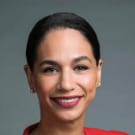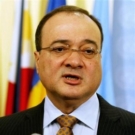Speakers

Noura Erakat
Assistant Professor
Rutgers University

Leila Farsakh
Associate Professor and Chair of the Political Science Department
University of Massachusetts Boston

Rashid Khalidi
Edward Said Professor of Modern Arab Studies
Columbia University

Nasser Al-Kidwa
Chairman of the Board of Directors
Yasser Arafat Foundation

Raef Zreik
Associate Professor of Law
Ono Academic College
Moderator

Event Summary
On June 3, 2020, Arab Center Washington DC (ACW) held a virtual event in cooperation with the Institute for Palestine Studies (IPS) titled “The Threat of Israeli Annexation: Regional and International Implications.” Participant panelists included Rashid Khalidi, President of IPS-USA and Professor of Modern Arab Studies at Columbia University; Nasser Al-Kidwa, former Palestinian Representative to the United Nations; Raef Zreik, Associate Professor of Law, Tel Aviv University; Noura Erakat, a human rights attorney and Assistant Professor at Rutgers University; Leila Farsakh, Associate Professor of Political Science at University of Massachusetts Boston; and Khalil E. Jahshan, ACW Executive Director. Tamara Kharroub, ACW Assistant Executive Director and Senior Fellow, moderated the event.
In looking at Israel’s annexation plan from a historical perspective, Rashid Khalidi said that it is not new but falls within the long-standing Zionist historical process of colonizing Palestine. This annexation is but the latest episode in a series of schemes since the beginning of Zionism more than 120 years ago. At first, he said, Zionism was assisted by great power patrons that endorsed its project; now, the movement continues with other steps to realize its ultimate purpose. Khalidi stated that “this is something that initially the great power patrons that made the success of Zionism possible, Great Britain and its leaders, originally endorsed as far as Israel was concerned … the entirety of Palestine was to become a Jewish state.” However, he continued, there are two new conditions: first, the Trump Administration’s full-hearted and public acceptance of annexation, and second, the clear outcome that the two-state solution is practically dead. Khalidi posed some questions about the future such as what the Palestinian, Arab, and international reaction would be once annexation takes place; whether there will be a different American response if President Donald Trump loses the election later this year (Khalidi did not have much faith that Biden would pursue different policies vis-à-vis Israel); and what happens to Israel after it kills the two-state solution. Finally, Khalidi said that there is much self-delusion about the possibility of a one-state solution.
Nasser Al-Kidwa discussed the implications of the Palestinian Authority’s (PA) declaration regarding suspending agreements with Israel and the United States. He emphasized the role Palestinians should play in the future. To him, Israel’s policies and practices have been the greatest threats to the national and civil rights of the Palestinians as well as to international order and law. Subsequently, he said, the responsibility to address the annexation plan is collective but primarily Palestinian. Al-Kidwa viewed as a positive development that the PA is no longer bound by agreements with Israel and the United States; he said it appears that this time, Palestinian leaders are committed and serious about the decision. He stated that “it seems that the Palestinian leadership [is] bent on showing more seriousness in dealing with the situation.” Al-Kidwa called for a different Palestinian strategy for national independence. He said it should include circumventing Israel’s abrogation of international law and agreements; confronting settler colonialism in the occupied territories and demanding the application of relevant Geneva Conventions; redesigning and restructuring the PA and the Palestine Liberation Organization (PLO); and defining relations with Israel in a realistic fashion, especially regarding the Palestinian economy. Al-Kidwa agreed with Khalidi that the one-state solution is no longer possible.
Examining the annexation plan in the context of domestic Israeli politics, Raef Zreik said that it holds both legal and political meanings. Legally, it touches on international law since annexation relates to sovereignty; and politically, it concerns the application of Israeli law in a specific territory. He stated that in Israel, the government has the capacity to annex land without having to go to the Knesset for specific legislation; in other words, Israel can continue to expand by executive fiat. But to enter into agreements to give up land, Israel finds itself in a very complicated legal and political battle. Zreik said that “there is no symmetry between the easiness with which Israel expands and the difficulties with which it should shrink.” He stated that what is new in the annexation plan is that it covers 20 percent of the West Bank and includes privately owned Palestinian land as well as the entire city of Jericho. Palestinians who own land inside the annexed area will become absentee landlords and thus may lose their property overnight. Zreik, too, agreed that the one-state solution is not tenable.
Noura Erakat drew a parallel between US racial domination and expansionism with Israeli expansionism and highlighted the international nature of the black freedom struggle. She said the Palestinians have at their disposal various United Nations instruments and resolutions, the Geneva Conventions, and other protocols that condemn apartheid, racial discrimination, and human rights abuses. She added that “the law is politics” and it is leveraged in the service of those who use it, including the Palestinians. However, Erakat argued, Palestinian leaders have not used opportunities to contest Israeli policies and have insisted that Washington play a primary role in negotiations—to realize later that the United States has in fact facilitated Israel’s incremental annexation. She said that “this outcome today was predictable, but it was not inevitable.” Nevertheless, Erakat noted, during the last six years there has been a shift in American politics and public opinion. Several Democratic presidential nominees boycotted the AIPAC conference; Bernie Sanders publicly affirmed Palestinian human rights; and other lawmakers, celebrities, and athletes supported the BDS movement. She asserted the importance of Palestinian civil society and of the need to supplant the Palestinian leadership with a new, young, and more daring generation of political decision makers.
Regarding regional and international reactions to annexation plans, Leila Farsakh suggested that it is helpful to consider the short-term and medium-term scenarios. In the short term, it is evident that Arab and international reactions are opposed to annexation; Jordan, for example, threatened to end its peace accord with Israel. However, she added, Arab states do not wield much influence because of their economic dependence on the United States, and Jordan and Egypt have economic relations with Israel. She said the European Union, which has publicly opposed annexation and any unilateral decisions by Israel, is the largest trader with Israel, making it possible for the EU to exert pressure given the Europeans still adhere to the two-state paradigm. For the medium term, Farsakh said that a major concern is the devastating economic effects of the coronavirus pandemic. She also emphasized ending the political fragmentation of the PLO and resolving the conflict with Hamas as well as devising strategies for “cleaning the Palestinian political home.” Although the rights-based and social justice discourse is gaining momentum, she stated that Palestinians “are living in an apartheid reality, in a one-state reality, that the annexation is a confirmation of what already is happening.” Farsakh added that the entire concept of self-determination in the 21st century should be examined because the Palestinian state project has served its aim and it is time to create a progressive, rights-based agenda.
Khalil Jahshan stated that “annexation in Palestine is not a new political phenomenon” but a continuation of the Zionist enterprise since the late 19th century. He described Zionist policies as long focusing on the depopulation of Palestine and the confiscation and annexation of Palestinian land. Jahshan said that the traditional US role has served as a “support group and enabler to Israeli policy and practices” through massive funding and international cover. The Trump Administration, he asserted, is actually an initiator—and not a bystander—in the current wave of annexation. In fact, he said, the days of lobbying on Capitol Hill have been obviated by a new reality in Washington: “the lobby is at the White House and we are paying their salaries.” Jahshan characterized Trump’s so-called peace plan as “a declaration of war against the Palestinian people,” one that aims to deprive them of their rights. He said that annexing parts of the West Bank constitutes a brazen violation of international law, noting that Trump is angry with the Palestinians because they are unwilling to negotiate according to the US president’s “diktat.” If Biden wins in November, Jahshan stated, he will continue to defend the “fiction of two states” and other antiquated ideas propounded by the Democratic Party. Jahshan concluded by calling on the presumptive Democratic candidate for a plan to restrain Netanyahu and reverse Trump’s steps in order to restore a credible and defensible negotiation process.


